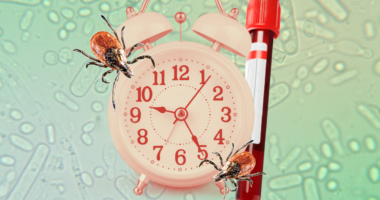
I’ve Fainted Inexplicably for Nearly a Decade. Finally, I Got a Diagnosis – After doing an ultrasound of my heart, my doctor determined that I didn’t have heart failure or heart disease. However, I was diagnosed with bradycardia, which means my heart rate is slower than 60 beats per minute, lower than what’s considered typical (between 60 and 100 beats per minute), according to the American Heart Association. When my body hasn’t absorbed enough salt or water, my heart rate drops even more, my cardiologist explained—and that prompts the fainting.1
I learned that bradycardia can cause weakness, dizziness, confusion, fainting, unusually intense fatigue during exercise, and chest pain. As a competitive athlete who continues to train at really high levels, it’s not super surprising that I have it. “Young healthy people—particularly athletes—can have slower heart rates, which can be a result of their exercise training,” Jeffrey J. Hsu, MD, PhD, a cardiologist with UCLA Health, tells SELF. I later learned that bradycardia can be caused by a range of factors, including damage to the heart (often related to aging), thyroid issues, autoimmune diseases like lupus, and congenital heart defects.
I was relieved to find out that this diagnosis doesn’t mean something is seriously wrong with me—just that I should be aware of it in order to avoid fainting as best I can. “Bradycardia does not have to mean a heart rate is abnormal,” Shephal Doshi, MD, a cardiac electrophysiologist and director of cardiac electrophysiology and pacing at Providence Saint John’s Health Center in Santa Monica, California, tells SELF. “A slower heart rate may simply be normal for you.” (In my case, whether my low heart rate is from exercise or genetics isn’t entirely clear.)
Though bradycardia by itself isn’t a disease, Dr. Hsu says, it can sometimes signal (or lead to) other issues, including heart failure. My doctors are monitoring my heart, but I don’t need treatment right this second. Instead, with the help of my cardiologist, I figured out my fainting and dizziness triggers in order to take control of my symptoms. I’m more likely to pass out if I’m dehydrated, so I constantly chug water. Eating too much throughout the day can make me woozy, so I avoid snacking after dinner and huge meals at night. My cardiologist suggested that I take in more salt to help balance electrolytes in my body, as low sodium levels can lead to me passing out more. I haven’t fainted since I learned about and started accounting for these triggers, but my doctor said I could look into a pacemaker—a small battery-powered device that keeps a person’s heart from beating too slowly—if things change. I have options—and I’m so glad that my discomfort didn’t win out over the interventions that help me stay healthy.
I’m continuing to see my cardiologist for checkups, given what I know about my family’s heart health and bradycardia’s association with other issues. In the meantime, it’s comforting to have safeguards in place that mean I most likely won’t find myself in a life-threatening situation alone, or with my kids. Even if I don’t have all the details of my heart story just yet, I’m committed to finding the answers I need as I go. And I’m staying upright as I do it—which is, very obviously, a huge relief in itself.
Sources:
Back to homepage








